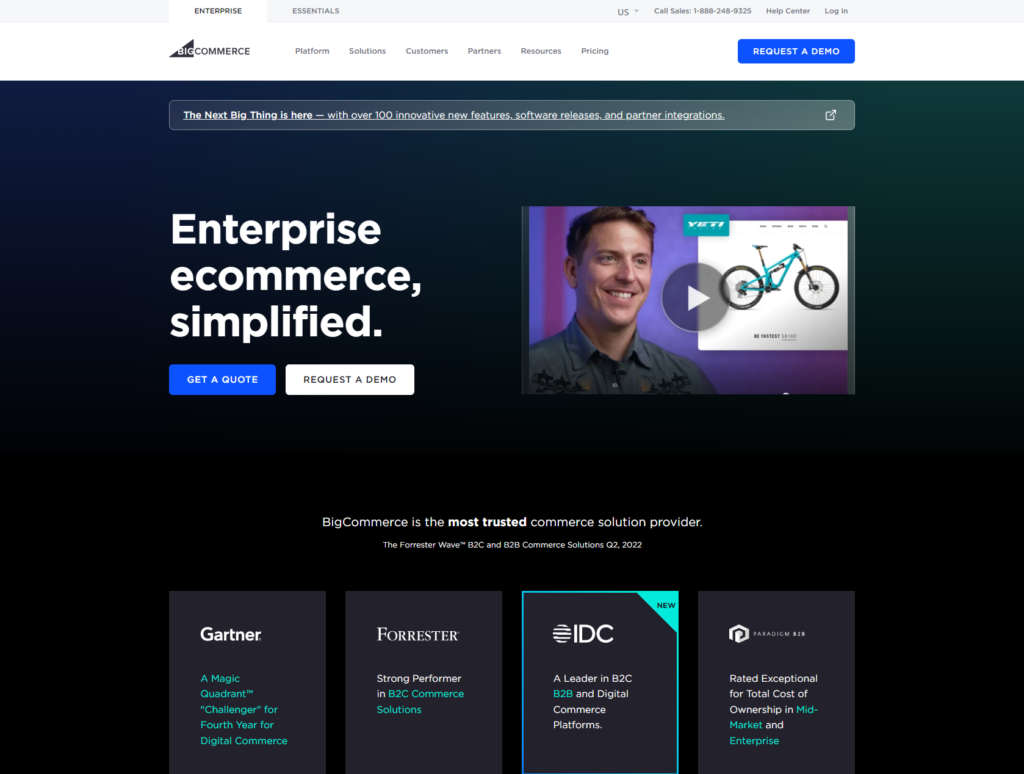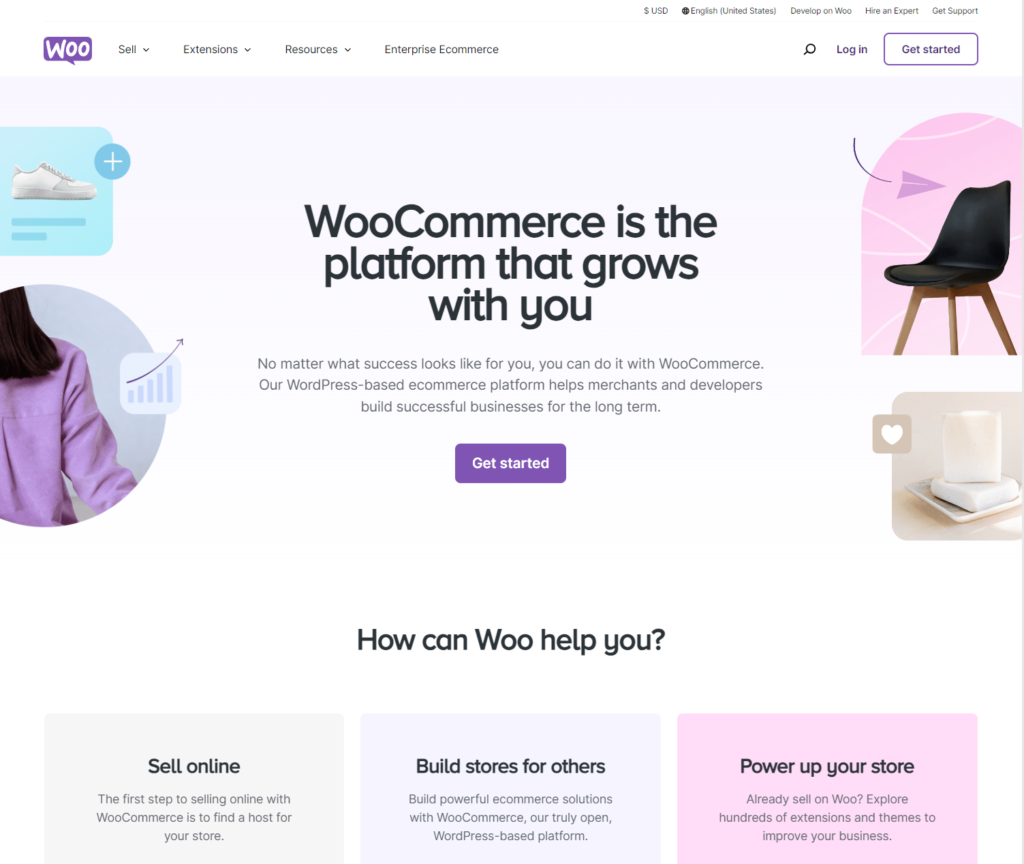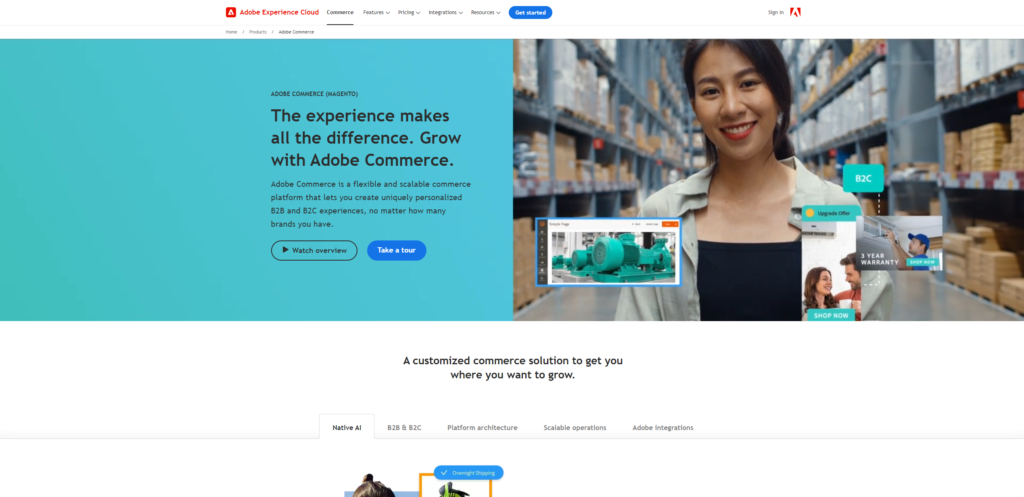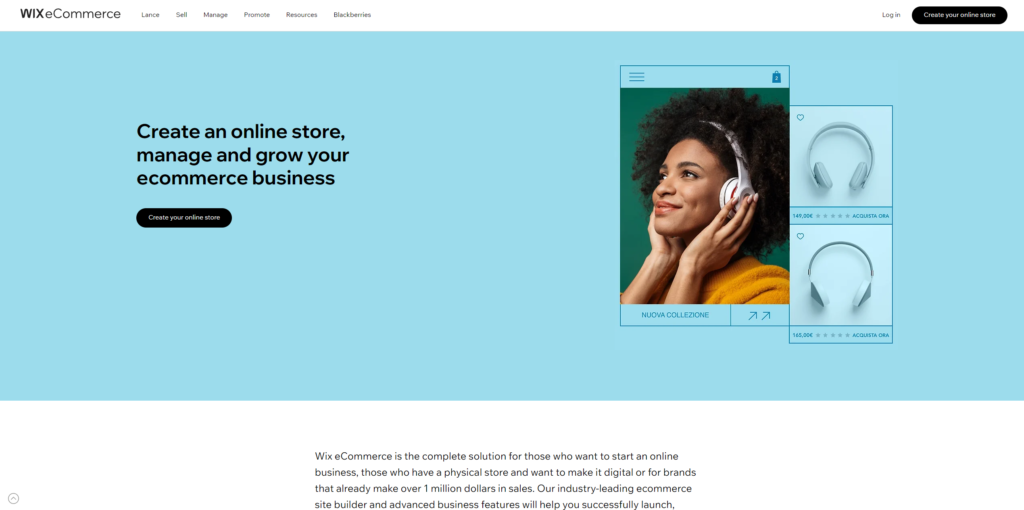In today’s rapidly evolving digital marketplace, e-commerce businesses must stay ahead of the curve to remain competitive and meet customer demands. One of the most effective ways to achieve this is by leveraging the power of Software as a Service (SaaS) solutions specifically designed for e-commerce. E-commerce SaaS platforms offer a robust, scalable, and cost-effective alternative to traditional software, enabling businesses to streamline operations, enhance customer experiences, and drive growth.
These platforms provide a comprehensive suite of tools and features that cover everything from website building and management to payment processing, inventory control, and marketing. By opting for an e-commerce SaaS platform, businesses can benefit from seamless updates, ongoing technical support, and the flexibility to scale their operations as they grow.
This article will explore the key features and benefits of e-commerce SaaS platforms and review some of the best e-commerce tools available. Whether you’re a small business owner looking to set up your first online store or an established enterprise aiming to optimize your digital operations, this guide will help you navigate the myriad options and choose the ideal SaaS solutions to fuel your business’s success.
1. Understanding E-commerce SaaS Platforms
Software as a Service (SaaS) refers to a cloud-based delivery model where software applications are hosted by a service provider and made available to customers over the Internet. Unlike traditional software, which requires installation on individual computers or servers, SaaS applications are accessed via a web browser, providing a flexible and user-friendly solution for businesses.
In the context of e-commerce, SaaS platforms offer a comprehensive suite of tools designed to help businesses create, manage, and grow their online stores. These platforms typically include features such as website builders, shopping carts, payment gateways, inventory management systems, and marketing tools, all integrated into a single, cohesive system. By leveraging SaaS solutions, e-commerce businesses can focus on their core activities while relying on the platform provider to handle technical aspects such as hosting, security, and software updates.
Scalability
One of the most significant advantages of e-commerce SaaS platforms is their scalability. As your business grows, your platform can easily accommodate increased traffic, a larger product catalog, and expanded operational needs. SaaS providers offer flexible pricing plans and resources that can be adjusted based on your business’s requirements, ensuring you only pay for what you use. This scalability enables businesses to respond quickly to market changes and seize new opportunities without the need for extensive IT infrastructure investments.
Cost-effectiveness
SaaS platforms offer a cost-effective solution for e-commerce businesses by eliminating the need for substantial upfront investments in hardware and software. Instead, businesses pay a subscription fee, which often includes hosting, security, and ongoing maintenance. This model allows for predictable budgeting and reduces the financial burden associated with traditional software purchases and upgrades. Additionally, SaaS platforms often include a range of built-in features and integrations, reducing the need for additional third-party tools and services.
Ease of Use and Maintenance
E-commerce SaaS platforms are designed with user-friendliness in mind, allowing business owners and employees to manage their online stores without requiring extensive technical expertise. Most platforms offer intuitive drag-and-drop interfaces, pre-built templates, and comprehensive tutorials, making it easy to set up and customize an online store. Furthermore, the responsibility for software maintenance, security updates, and technical support lies with the SaaS provider, freeing businesses from the complexities of managing their IT infrastructure.
Regular Updates and Support
SaaS providers continuously improve their platforms by releasing regular updates and new features. These updates are automatically deployed, ensuring that businesses always have access to the latest technology and security enhancements without any disruption to their operations. Additionally, SaaS providers typically offer robust customer support, including technical assistance, training resources, and community forums. This ongoing support helps businesses resolve issues quickly and take full advantage of their platform’s capabilities.
2. Key Features of E-commerce SaaS Platforms
When choosing an e-commerce SaaS platform, it’s crucial to consider the features that will best support your business’s growth and operational needs. The right platform can significantly enhance your efficiency, customer experience, and overall success. Here are some essential features to look for:
User-Friendly Interface
A user-friendly interface is paramount for both the business owner and the customers. For business owners, the platform should offer an intuitive dashboard that simplifies tasks such as adding products, managing orders, and tracking inventory. Drag-and-drop functionality, clear navigation, and comprehensive tutorials are also beneficial. For customers, a seamless and straightforward shopping experience with easy navigation, quick load times, and responsive design ensures a positive user experience and can significantly reduce cart abandonment rates.
Customization Options
Every e-commerce business has unique needs and branding requirements. A robust SaaS platform should provide ample customization options to tailor your online store to match your brand identity. This includes customizable templates, flexible layout options, and the ability to modify colors, fonts, and other design elements. Advanced platforms may also offer access to HTML, CSS, and JavaScript for more extensive customization, allowing businesses to create a truly unique shopping experience.
Integration Capabilities with Other Tools and Platforms
Integration capabilities are essential for creating a cohesive and efficient e-commerce ecosystem. Look for platforms that offer seamless integration with various third-party tools and services, such as payment gateways, shipping providers, email marketing services, customer relationship management (CRM) systems, and social media platforms. Strong integration capabilities streamline operations, improve data flow, and enhance the overall functionality of your online store.
Secure Payment Processing
Security is a top priority for any e-commerce business. Ensuring secure payment processing is crucial to protect customer data and build trust. A reliable e-commerce SaaS platform should support multiple payment methods, including credit cards, digital wallets, and other alternative payment options, while adhering to the highest security standards, such as PCI-DSS compliance. Look for features like fraud detection, encryption, and secure checkout processes to safeguard transactions.
SEO and Marketing Tools
Effective SEO and marketing tools are vital for driving traffic to your online store and increasing visibility. An ideal SaaS platform should offer built-in SEO features, such as customizable meta tags, URL structures, and sitemaps, to help your site rank higher in search engine results. Additionally, marketing tools like email marketing integrations, social media sharing, discount codes, and promotional banners enable you to engage customers and boost sales. Advanced analytics and tracking features can also help you measure the effectiveness of your marketing campaigns and make data-driven decisions.
Analytics and Reporting
Data-driven insights are essential for understanding your business’s performance and making informed decisions. A robust e-commerce SaaS platform should provide comprehensive analytics and reporting tools that track key metrics such as sales, traffic, customer behavior, and inventory levels. Look for customizable dashboards, real-time data updates, and the ability to generate detailed reports. These features allow you to monitor trends, identify growth opportunities, and optimize your operations for better efficiency and profitability.
3. Best E-commerce SaaS Platforms
In the competitive world of e-commerce, selecting the right SaaS platform is crucial for the success of your online store. Here, we provide a detailed review of the top e-commerce SaaS platforms available in the market, focusing on their features, pricing, and suitability for different types of businesses.
Working remotely? Don’t worry, take a look at this guide about the Essential SaaS Tools For Remote Teams!
Shopify

Overview: Shopify is one of the most popular e-commerce platforms, known for its ease of use and extensive feature set. It caters to businesses of all sizes, from small startups to large enterprises.
Features:
- User-friendly interface with drag-and-drop functionality
- Over 70 professional themes and customizable templates
- Integrated payment processing with Shopify Payments and support for over 100 payment gateways
- Built-in SEO and marketing tools, including email campaigns and social media integration
- Comprehensive app store with thousands of add-ons and integrations
- 24/7 customer support
Pricing:
- Basic Shopify: $29/month
- Shopify: $79/month
- Advanced Shopify: $299/month
- Shopify Plus (Enterprise solution): Custom pricing
Suitability: Ideal for small to medium-sized businesses looking for a comprehensive, easy-to-use platform with extensive customization options and scalability.
BigCommerce

Overview: BigCommerce is a robust e-commerce platform known for its scalability and advanced built-in features, making it a great choice for growing businesses.
Features:
- User-friendly interface with advanced customization options
- Multiple payment gateways with no additional transaction fees
- Built-in SEO tools and marketing features, including abandoned cart recovery and email marketing
- Advanced product management with support for complex product catalogs
- Strong integration capabilities with popular tools like Google Shopping, Amazon, and eBay
- 24/7 customer support
Pricing:
- Standard: $29.95/month
- Plus: $79.95/month
- Pro: $299.95/month
- Enterprise: Custom pricing
Suitability: Best suited for businesses looking to scale quickly and needing advanced built-in features and integrations.
WooCommerce

Overview: WooCommerce is a powerful, open-source e-commerce plugin for WordPress. It offers extensive customization options and flexibility, making it a popular choice for tech-savvy users.
Features:
- Full integration with WordPress, leveraging the power of the CMS
- Highly customizable with a wide range of themes and plugins
- Supports multiple payment gateways and shipping options
- Built-in SEO capabilities via WordPress
- Extensive community support and documentation
Pricing:
- Free core plugin (additional costs for hosting, themes, and extensions)
Suitability: Ideal for businesses already using WordPress or those seeking a highly customizable and flexible platform, especially those with technical expertise.
Magento

Overview: Magento (now Adobe Commerce) is a feature-rich, open-source platform that offers unparalleled customization and scalability, suitable for large businesses and enterprises.
Features:
- Highly customizable with extensive third-party integrations
- Advanced product and order management capabilities
- Strong SEO, marketing, and promotional tools
- Supports multiple languages, currencies, and tax rates
- Robust analytics and reporting features
Pricing:
- Magento Open Source: Free (additional costs for hosting and extensions)
- Adobe Commerce (Cloud): Custom pricing
Suitability: Best for large businesses and enterprises with complex requirements and the resources to manage a highly customizable platform.
Wix eCommerce

Overview: Wix eCommerce is part of the popular Wix website builder platform, offering a simple and affordable solution for small businesses and beginners.
Features:
- Intuitive drag-and-drop website builder
- Wide range of customizable templates
- Integrated payment processing with multiple options
- Basic SEO tools and marketing features
- App Market with additional integrations
- 24/7 customer support
Pricing:
- Business Basic: $23/month
- Business Unlimited: $27/month
- Business VIP: $49/month
Suitability: Perfect for small businesses, entrepreneurs, and beginners looking for an affordable and easy-to-use platform with essential e-commerce features.
Conclusion
Recap of the Benefits of Using E-commerce SaaS Platforms and Tools
E-commerce SaaS platforms and complementary tools offer numerous advantages that can significantly enhance online businesses’ efficiency, scalability, and success. Key benefits include:
- Scalability: SaaS platforms such as Shopify Plus and BigCommerce provide the flexibility to grow with your business, handling increased traffic and expanded product catalogs without compromising performance.
- Cost-Effectiveness: These platforms eliminate the need for significant upfront investments in hardware and software, offering subscription-based pricing that includes maintenance, security, and updates.
- Ease of Use: User-friendly interfaces and intuitive design tools enable business owners to set up and manage their online stores with minimal technical expertise, reducing time and effort.
- Customization: Platforms like WooCommerce and Magento offer extensive customization options, allowing businesses to create unique and engaging shopping experiences that reflect their brand identity.
- Integration: Seamless integration with various third-party tools and services streamlines operations, enhancing functionalities in payment processing, inventory management, and marketing.
- Security: Robust security features and compliance with industry standards ensure safe transactions and protect customer data, building trust and confidence.
- Marketing and SEO: Built-in tools for SEO, email marketing, and social media integration help drive traffic, engage customers, and boost sales.
- Analytics and Reporting: Comprehensive analytics and reporting capabilities provide valuable insights into business performance, enabling data-driven decision-making.
Encouragement to Explore and Choose the Best SaaS Solutions for Specific Business Needs
Given the diverse range of e-commerce SaaS platforms and tools available, it’s crucial for businesses to thoroughly explore their options and choose solutions that best meet their specific needs and goals. Consider factors such as:
- Business size and growth potential
- Technical expertise and resources
- Budget constraints
- Specific feature requirements and integrations
- Target market and customer demographics
By carefully evaluating these factors and leveraging the strengths of each platform, businesses can make informed decisions that drive success and growth. Take the time to research, test, and consult with experts to find the SaaS solutions that align perfectly with your business objectives.

